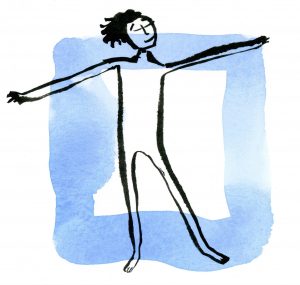
This spring, my wife Molly and I are moving back to the Ashram. It’s been a long time
coming and I feel like I am holding my breath waiting.
We plan to go for a year but for me, it’s less about the time and more about reorienting my life in response to my heart. I am starting to answer a question that follows me through my day – what is needed now?
This question that is activating my heart arises from my experience with the pandemic and the climate crisis.
Collective voices
The pandemic has been hard. Materially, I was buffered by my privilege but mentally, I often found myself overwhelmed and disoriented, no longer able to maintain my grounding. Three experiences highlight what was lost or more what is important to sustain – all are connected to sound and community.
It was a wet autumn night in 2021 and a small group of us gathered for a Harry Manx concert at the Civic Theatre in Nelson. We were masked, alert to the risk of gathering in numbers and also excited for the promise of live music. Sitting in the dark theatre, distanced from strangers but close to friends, I felt an aliveness that was larger than me: I was in something. The music lifted me up and reminded me of a longing deep within.
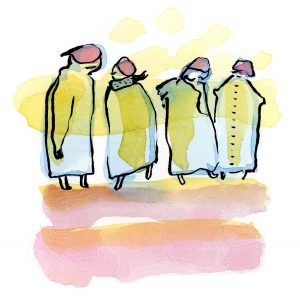
A year later I felt that again. This time it was chanting and singing in the Temple at satsang: the music was us. We were a collective force of voices finding harmony, blending together, and sharing our prayers. The music was an invitation for me to return to something familiar – a community of seekers.
Then this winter, a small group at the Shamballa Centre came together for zikr – a Sufi practice of remembering. Led by Kabir and Mirabai, we sang and danced, opening our hearts, and calling out our commitments to peace, joy and love. As we left, we were asked to notify if any symptoms emerged, the shadow of illness again present. I floated home, grateful.
What is it about sound and community, voices coming together? What is it about the collective practice of remembering and praying together? After years of not being able to breathe with enthusiasm, to express vocally, I am struck by the joy that comes from this space created together. It is liberating; we must be together.
Where do you go in a crisis?
I work in climate action and sustainability. As I try to shape and disrupt systems to decrease carbon pollution and encourage more active and resilient communities, the questions of what is happening, what is underneath this crisis of extreme weather events and change are ever present.
In 2014, when the Temple burned, I was living at the Heights (a community of houses above the Ashram campus that are independent living). The night of the fire, the only place I could be was down at the Ashram, close to what was happening, so that I could listen, hear, and respond. That experience showed me that in a crisis, I like to hunker down and be close to those I love.
Molly and I have been trying to figure out what is the big move we should be considering – buy an electric car, quit our jobs, stop all aeroplane travel, buy a tiny house, should we, should we …. What is right action? What can we do with our lives?
As a species, we are radically altering our home and yet, by and large, we are oblivious and unconcerned: maintaining status quo or changing minimally. Our homes are on fire and we are wondering if we will have enough sugar for our tea.
What is needed now?
Where I arrive is connection, community and relationship. It seems to me that we are in this place because of a loss of connection to ourselves, to land, to each other. For me, the way forward is to connect with what is happening now.
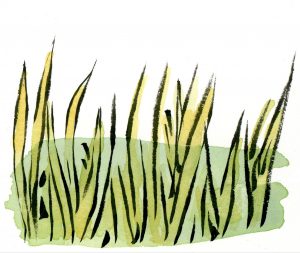
Roshi Joan Halifax recently spoke on Outrage and Optimism about the importance of rebuilding intimacy and accountability. If our loved ones, our animals, our neighbours were suffering, we would approach them relationally – we would sit with them, care for them, ask what is wrong and listen.
This act of care doesn’t have to be a big move, it can be small scale feeling acts such as harvesting every drop of water. Allowing us to take responsibility and realize the truth of interconnectedness. These small acts, combined with large societal shifts, can be a way to change our relationship from one of consumption and destruction to reverence and reciprocity.
According to Roshi Joan Halifax, we need a strong back, soft front so that we are able and willing to clearly see what is and not flee. This same message is found in the Yoga of Healing. Swami Radhananada says that healing comes when we no longer flinch.
Showing up with love
A few weeks ago, Swami Lalitananda asked us how do we reconcile with the truth that the Ashram is on unceded land. It is a big question that I love Swami Lalitananda for asking, thank you. Listen, reorient, connect to another way of being, seek out other ways of knowing. I am excited for the conversations that will come.
Swami Lalitananda also reminded me recently that we must come to the Ashram out of love, service from love. Duty and obligation will not sustain, but love is ever replenishing. Similarly, Roshi Joan Halifax says that this work requires knowing why we are here, this must be the primary organizing principle.
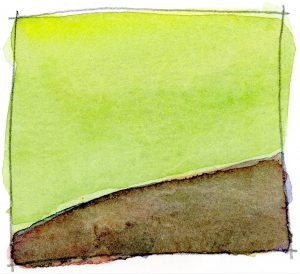
The earth, the animals, the birds, the water, the trees are suffering. This can be hard to accept. We do not know what will happen but we must show up. I understand I need to be in a community of voices where I can get close. Soon, I am going to sit with the land, a piece of earth I love dearly, to strengthen my connection, and listen for what is needed now.
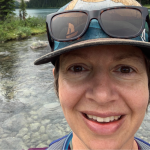
Paris Marshall Smith
Original Artwork by Shakti
